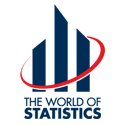2013 Hansen Lecture
Stephen E. Fienberg, Carnegie Mellon University
"Envisioning the 2030 U.S. Census"
Discussants: Ivan Fellegi, Statistics Canada
Robert Groves, Georgetown University
Abstract: The level of error in the U.S. decennial census, as measured by gross error (the sum of the errors of omission and commission), has remained remarkably high at approximately 10% over the last three censuses. During the same period, the cost of the census has skyrocketed from $2.6 billion in 1990 to over $13 billion in 2010, even though the census long form was dropped in 2010 in favor of data collection over the decade via the American Community Survey. Without dramatic changes, the cost of a traditional census in 2020 will far outstrip the willingness of Congress to pay. Moreover, we predict that concerns about the confidentiality of census data will pose increasing problems despite the Census Bureau's constant vigilance. The Census Bureau clearly needs to become more nimble in testing new methodologies for census- taking without jettisoning the best of current approaches. In this presentation we will look beyond 2020 to 2030 and speculate on radical changes that could allow for greater census accuracy and lower costs. Methodologies we consider include: the use of aerial photography to supplement or even replace the master address file, the multiple roles for administrative records, and the widespread use of both individual and family-level online census forms. We discuss both obstacles and opportunities in addressing the challenge of placing everyone in the U.S. into appropriate household locations, and we re-examine the concept of counting everyone, "once, and only once, and in the right place." (This presentation was based on joint research with William F. Eddy.)






